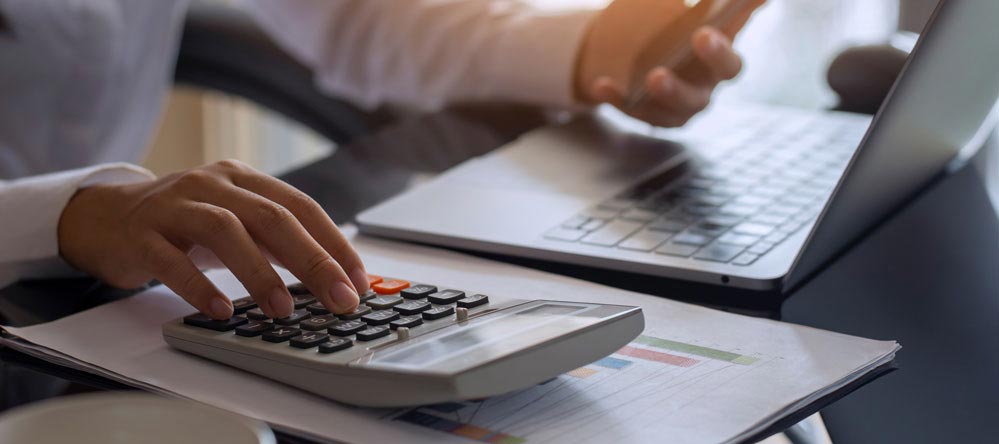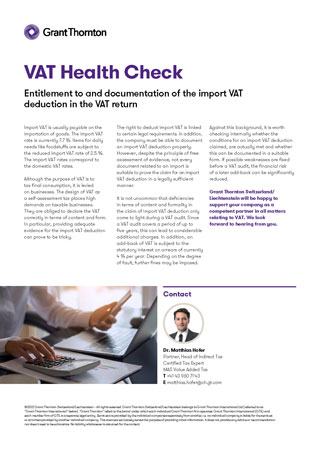-
Audit Financial Services
More security, more trust: Audit services for banks and other financial companies
-
Audit Industry, Services, Institutions
More security, more trust: Audit services for national and international business clients
-
Corporate Tax
National and international tax consulting and planning
-
Individual Tax
Individual Tax
-
Indirect Tax/VAT
Our services in the area of value-added tax
-
Transfer Pricing
Our transfer pricing services.
-
M&A Tax
Advice throughout the transaction and deal cycle
-
Tax Financial Services
Our tax services for financial service providers.
-
Financial Services
Consultancy services that generate real added value for financial service providers.
-
Advisory IT & Digitalisation
Generating security with IT.
-
Forensic Services
Nowadays, the investigation of criminal offences in companies increasingly involves digital data and entire IT systems.
-
Regulatory & Compliance Financial Services
Advisory services in the area of financial market law.
-
Transaction Services / Mergers & Acquisitions
Successfully handling transactions with good advice.
-
Legal Services
Experts in commercial law.
-
Trust Services
We are there for you.
-
Business Risk Services
Sustainable growth for your company.
-
Abacus
Grant Thornton Switzerland Liechtenstein has been an official sales partner of Abacus Business Software since 2020.
-
Accounting Services
We keep accounts for you.
-
Payroll Services
Leave your payroll accounting to us.
-
Real Estate Management
Leave the management of your real estate to us.
-
Apprentices
Career with an apprenticeship?!

Although the purpose of VAT is to tax final consumption, it is levied on businesses. The design of VAT as a self-assessment tax places high demands on taxable businesses. They are obliged to declare the VAT correctly in terms of content and form. In particular, providing adequate evidence for the import VAT deduction can prove to be tricky.
The right to deduct import VAT is linked to certain legal requirements. In addition, the company must be able to document an import VAT deduction properly. However, despite the principle of free assessment of evidence, not every document related to an import is suitable to prove the claim for an import VAT deduction in a legally sufficient manner.
It is not uncommon that deficiencies in terms of content and formality in the claim of import VAT deduction only come to light during a VAT audit. Since a VAT audit covers a period of up to five years, this can lead to considerable additional charges. In addition, an add-back of VAT is subject to the statutory interest on arrears of currently 4 % per year. Depending on the degree of fault, further fines may be imposed.
Against this background, it is worth checking internally whether the conditions for an import VAT deduction claimed, are actually met and whether this can be documented in a suitable form. If possible weaknesses are fixed before a VAT audit, the financial risk of a later add-back can be significantly reduced.
Grant Thornton Switzerland/Liechtenstein will be happy to support your company as a competent partner in all matters relating to VAT. We look forward to hearing from you.


